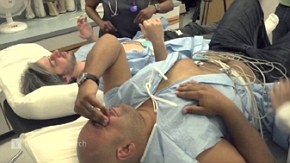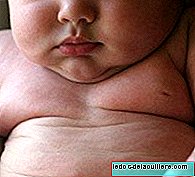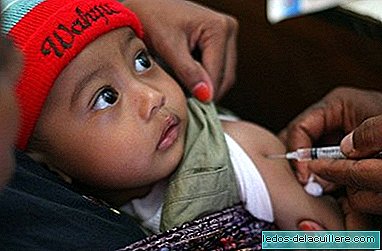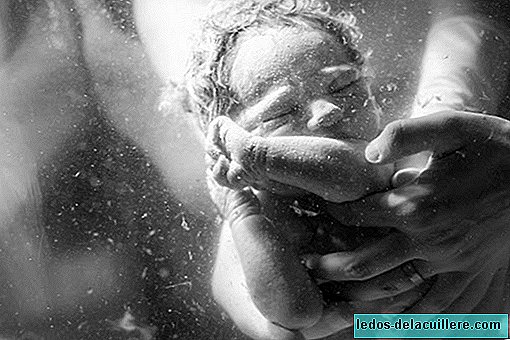Today May 13 is a very special day. A day in which we have to make a parenthesis to remember the children who are sick and have to remain admitted. If hospital life is hard for an adult, imagine what it means for a child to be day after day in a hospital room, undergoing medical tests, check-ups, etc.
The Gregorio Marañón Hospital in Madrid together with other associations want to institutionalize the National Hospitalized Children's Day to raise awareness about the situation of these children and work to defend their rights as patients. To do this, they have released the video 'Throw kisses for hospitalized children', with lyrics and music by singer Conchita.
In it, the team of hospital professionals send a barrage of kisses for hospitalized children, also inviting everyone to participate in the launch of kisses. When he sees it, he transfers the love and dedication that doctors and nurses put into the care of these children.
Among the entities involved in this initiative we can find Atresmedia, Abracadabra, Aladina, Small Hearts, Small Desire and Theodora, as well as the Spanish Association Against Cancer and the Spanish Federation of Parents of Children with Cancer.
It is not easy for children who are admitted or for their families, of course. So We join the initiative and send a kiss to each of the kids who are currently in a hospital room.
Finally, tell you that it has been chosen today because also on May 13, but from 1986, the resolution of the Charter of the Rights of the Hospitalized Child by the European Parliament. And by the way, today is a great day to remember them.
Hospitalized children have the right:

• Not to be hospitalized except in case you cannot receive the necessary care at home or in an outpatient clinic.
• At day hospitalization, without this putting an additional burden on the parents.
• To be accompanied by their parents or the person who replaces them as long as possible during their stay in the hospital, without impeding the application of the necessary treatments for the child.
• To receive information adapted to their age, their mental development and their emotional and psychological state.
• To an individual reception and follow-up, where the same nurses and assistants are assigned as much as possible for said reception and the necessary care.
• To refuse (through the mouth of their parents or the person who substitutes them) to be subject to investigation, and to refuse any care or examination whose primary purpose is educational or informative and not therapeutic.
• Right of their parents or of the person who substitutes them to receive all the information related to the illness and well-being of the child, as long as their right to respect their privacy is not affected by it.
• Right of the parents or the person who replaces them to express their agreement with the treatments applied to the child.
• Right of the parents or the person who substitutes them for an adequate reception and their psychosocial follow-up by personnel with specialized training.
• Not to be subjected to pharmacological or therapeutic experiences. Only the parents or the person who replaces them will have the possibility to grant their authorization as well as withdraw it.
• The right of the child, when undergoing therapeutic experimentation, to be protected by the Helsinki declaration of the World Medical Assembly and its subsequent actions.
• To not receive useless medical treatments and not to endure physical and moral sufferings that can be avoided.
• Right and means of contacting their parents or the person who replaces them in times of tension.
• To be treated with tact, education and understanding and to have their privacy respected.
• To receive the care provided by a qualified staff, who knows the needs of each age group in the physical and emotional plane.
• To be hospitalized with other children, avoiding hospitalization among adults as much as possible.
• To have furnished and equipped premises, so that they meet your needs in terms of care, education and games, as well as official safety regulations.
• To continue their school training and to benefit from the teachings of the teachers and the teaching material that the school authorities make available to them on condition that such activity does not cause damage to their well-being and / or does not hinder the treatments that are followed.
• To have appropriate toys for their age, books and audiovisual media.
• To be able to receive studies in case of partial hospitalization or convalescence in your own home.
• To the security of receiving the care you need, even if the intervention of justice is necessary if the parents or the person who replaces them are denied them for religious reasons, cultural delay, prejudice, or are not in a position to take the appropriate steps to deal with the urgency.
• To the necessary economic, moral and psychosocial help to be subjected to examinations and / or treatments that must be carried out abroad.
Photos | iStokphoto
In Babies and more | Children's rights do not disappear when they enter the hospital












